With 50 different states all operating on a relatively individual basis, it’s hard to keep up with where each stands following the 2018 bill. Want to know what the rules are for your state?
You can use our interactive map of the USA to find out what the current situation is in each of the 50 US states.
The USA is on the brink of a new era in its sporting history. With a legislation passed in May 2018 which permitted each state to define their own sports gambling laws, all 50 states now have the freedom to control their future.
Countries like the UK have been able to freely bet on sports matches for decades. But, for the US, this marks the first time most states have been allowed to legally place a bet on the likes of soccer, basketball, baseball and other popular pastimes.
Despite the hesitancy to adopt the same standards as their former colonial ruler, the US’ break from the British Empire was partly funded by gambling.
In the aftermath of the American Revolutionary War, many cite the lottery as one of the key means of funding the new America. K. Rychlak’s article perhaps summed it up best, when he said:
“Two hundred years ago, government-sanctioned lotteries were common throughout America. Lacking a strong central government and burdened with a weak tax base, early Americans viewed lotteries as legitimate vehicles for raising revenue. Lottery proceeds were used to build cities, establish universities, and even to help finance the Revolutionary War.”
These early forms of gambling would continue on through to the 19th century, with citizens also betting on horse racing. While racetracks had exclusively been the playgrounds of the rich before USA independence, things would change after breaking away from Britain.
Racetrack owners realised there was a new market to corner. They began running rackets which would capitalise on the “get-rich-quick”mentality which gripped middle and lower class American families.
They offered the alluring opportunity of making a speedy buck, introducing large events and memorable races which drew in thousands of spectators. Some of these, such as the Kentucky Derby and Belmont Stakes, still exist today.
Card and dice games also began to get popular, with the first ever slot machine – The Liberty Bell – introduced by Charles Fey in San Francisco in 1895.
Gambling was on the rise. Sadly, so too was the chance to exploit the market.
The first alleged case of corruption on a national scale came in 1919, during the now infamous Black Sox Scandal. Having reached the World Series of that year, it was alleged several players from the Chicago White Sox were paid $10,000 each to rig the championship in favour of the Cincinnati Reds.
The backlash was severe. Public opinion turned, with the US Federal Government banning sports betting in most states. What’s more they also introduced a 10% tax hike on all sports gambling in Nevada – where gambling had been allowed to continue owing to pre-existing internal legislation – in 1951.
This crippled the mainstream gambling market in the States. As a result, organised crime syndicates began running illegal rackets. The very thing the government had been trying to prevent would define bookmaking for the next four decades.
In order to combat the rising levels of tax-evading organised crime units who had now engulfed sports betting, the government introduced new legislation. The first official law came in the form of the Federal Wire Act of 1961.
This stated that:
“Whoever is engaged in the business of betting or wagering knowingly uses a wire communication facility for the transmission in interstate or foreign commerce of bets or wagers or information assisting in the placing of bets or wagers on any sporting event or contest, or for the transmission of a wire communication which entitles the recipient to receive money or credit as a result of bets or wagers, or for information assisting in the placing of bets or wagers, shall be fined not more than $10,000 or imprisoned not more than two years, or both.”
In layman’s terms, the at would:
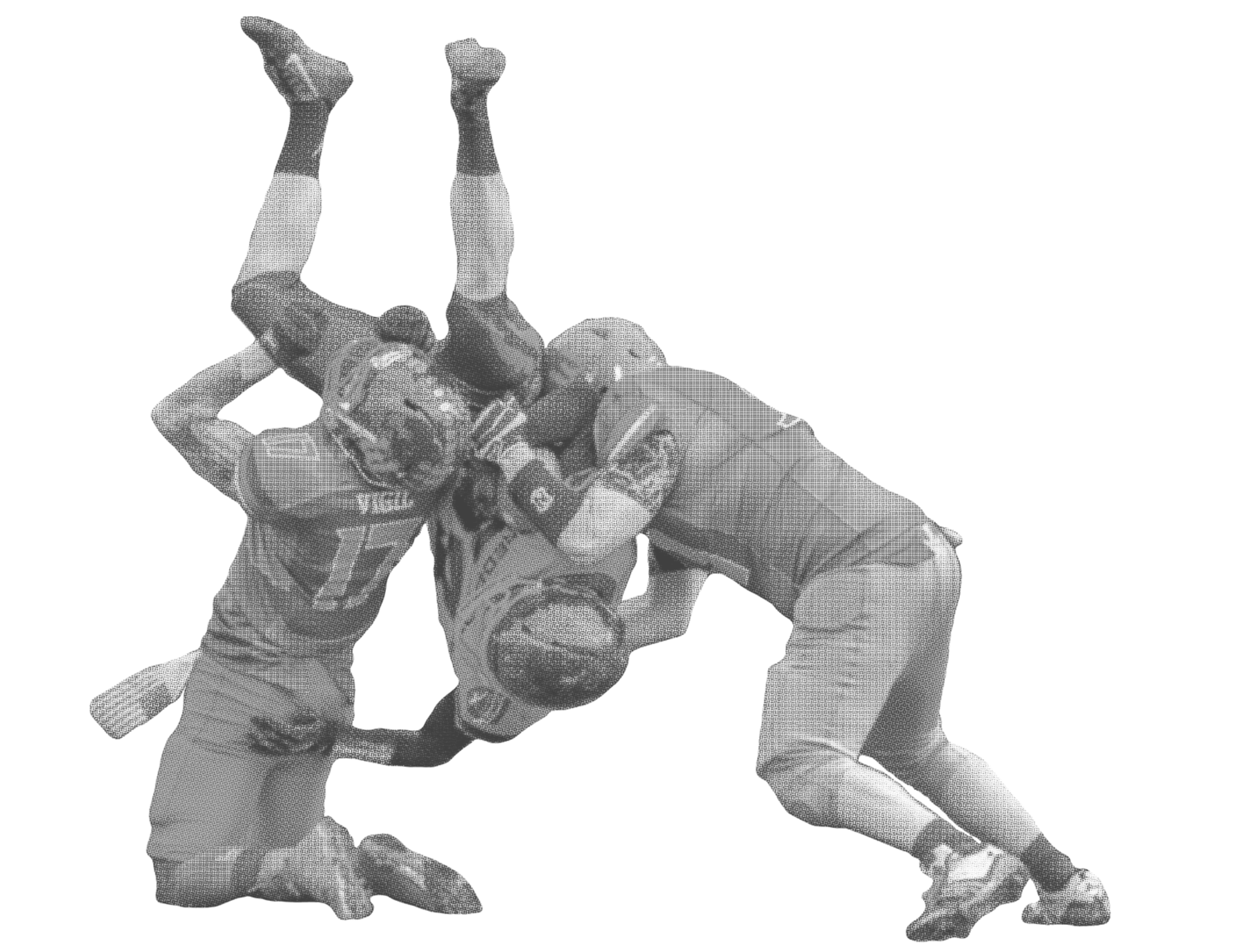
This first foray into sports gambling legislation wouldn’t put an outright stop to these illegal rackets, though. As the decades progressed efforts would slacken, with the chairman of the Commission on the Review of the National Policy Toward Gambling going as far in 1976 as to say:
“Contradictory gambling policies and lack of resources combine to make effective gambling law enforcement an impossible task under present conditions.’ Not ‘difficult’ not ‘frustrating’ not even ‘almost impossible’ but impossible. And why not? How can any law which prohibits what 80 percent of the people approve of be enforced?”
With the acceptance that sports gambling rackets couldn’t be fought, it appeared the Mafia had won out. Eventually, the 10% tax would even be slackened to just 2% – allowing states like Nevada, Montana, Oregon and Delaware to implement their own internal legislation for sports gambling (it was this legislation which would see them allowed to continue operating sportsbooks on some level throughout the next six decades).
Public opinion would slowly shift in the wake of a string of sporting controversies which were directly related to gambling. Points shaving in Boston College basketball games between 1978 and 1979, and the revelation MLB star Pete Rose was betting on matches, caused growing disrest among the casual gambler and sports fan.
The government would react by imposing an outright domestic ban on all sports betting in the United States. The only four states who would remain exempt were the aforementioned Nevada, Montana, Oregon and Delaware, whose pre-existing laws saved them from losing the right to accept sporting bets at specific locations.
The new legislation didn’t outright ban sports betting. After all, this had technically been illegal in all but the four aforementioned states since the early 1900s. However, it did prevent new states from regulating gambling themselves. The idea here was to stop the spread of sports betting further, killing it at source.
This act would serve as a very late tag-on to the Wire Act of 1961. With the rise in prominence of internet usage in most homes, changes to the 61’ act needed to be implemented. The concept of the internet was nothing short of unthinkable at that time, so this change to the law was required to prevent people from jumping through loopholes.
The necessity for legislation in sports betting was born out of a series of controversies which robbed competitive games of their integrity. We’ve already discussed the Black Sox Scandal of 1919, but that’s far from all that’s happened. Here are just a handful of the most notable scandals which gripped US sports over the years.
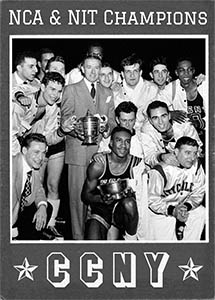
CCNY were the reigning NCAA (National Association of Intercollegiate Athletics) and NIT (National Invitation Tournament) champions when they became embroiled in a scandal which would reveal several of their players bet on and fixed games during the 1950 season. In total, 32 players from 7 different schools were found guilty and banned from the sport.
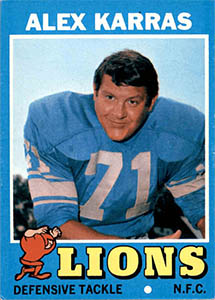
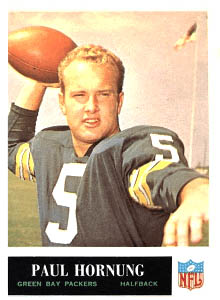
While they never bet on or against their own teams, both of these NFL stars were found to be in breach of their contracts when they placed money on American Football games.
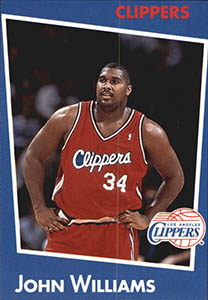
5 players, including NBA veteran and legend, John Williams, were accused of points shaving to the tune of a combined $17,000 in Tulane. Thankfully for Hot Rod, he was never prosecuted. This allowed him to go on and star in the NBA for 13 seasons.
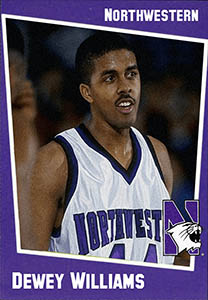
Williams and a teammate were given a brief prison sentence for fixing basketball games so that Northwestern would lose. This has gone down as one of the more jovial instances of rigging matches – largely because the team famously lose most matches anyway.
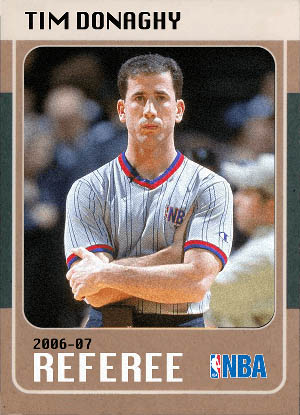
An investigation found Tim donaghy – a long-time NBA ref – had been betting on games, as well as advising others how to bet.
Despite these controversies, modern attitudes have shifted back in favour of sports gambling. It was this soar in popularity which contributed to the decision from the state of New Jersey to fight the laws put down to them by PASPA.

2018 has seen the introduction of a new period in the history of US gambling. Thanks largely to pressure put on the government by the state of New Jersey, we’re on the brink of sports gambling being made legal across the USA.
In 2011, voters in a New Jersey referendum would decide they wanted to see the introduction of legal sports betting in their state. There were several overarching reasons for the decision to vote on the re-introduction of legal sports gambling, with the most important being:
Their initial efforts would be blocked by the NCAA in 2012. They cited the desire to prevent the integrity of sport, and would convince the federal courts to side with them. Initially, it seemed as though the 2011 referendum had been for nothing.
However, far from giving up, New Jersey would push on. They took their battle to the Supreme Court, arguing they had every right to govern themselves, without the dictatorship of the NCAA to censor them.
In a sensational turn of events, seven of the nine Supreme Justices would vote to allow them their right to gamble on sports events. New Jersey was now free to create its own laws regarding bookkeeping on both amatuer and professional sports.
This didn’t automatically mean that all states across the US could now start gambling. But what did it mean was:
All 50 states had the chance to decide if they wanted to allow internal sports betting
Needless to say, the landscape of sports betting in the USA is about to change drastically. Millions of people are on the verge of being allowed to gamble.
And,with continually evolving technological advancements, the very nature of betting could be on the verge of a facelift. The introduction of the internet has already brought with it the necessity to amend existing laws. But what’s next?
The Supreme Court’s ruling in May 2018 sparked a wave of change in the US. Here are some of the potential repercussions.
The way in which sports are covered could be about to get a rebrand. Recent research has suggested the average non-betting NFL fan watches 15-16 games a year, whereas a gambling fan watches as many as 45-50. The study went on to suggest gamblers accounted for 47% of all minutes viewed.
This is likely to result in two major changes to the way in which sports leagues like the NFL, NBA and MLB are presented:
Higher revenue adverts (most likely for betting companies) placed throughout coverage
Average non-betting NFL fan watches 15-16 games a year, whereas a gambling fan watches as many as 45-50
With the ability to bet at any time while watching a sports match, television networks are likely going to try and tap into this profitable market.

Primarily Las Vegas, has had a stronghold over the sports gambling world for decades in the USA. With the Supreme Court changing all that, there’s a belief the city of sin may begin to experience a gradual decline. While only 2.5% of earnings are taken through sports bets in Vegas, there’s a chance rival states could begin to form their own gambling empires off the back of the changes. While there’s no way things are going to change overnight, this could be the beginning of a gradual swing which takes power out of the hands of Vegas casinos.
are themselves a relatively new concept. As such, it’s hard to definitively analyse them and conclude how much of an impact betting will have. There’s not much in the way of historical case studies from other countries to assess what might happen next. Currently, there’s two schools of thought on the matter:
The addition of gaming revenue could help to fund an increase in exposure for the eSports community. With, theoretically, more viewers and a higher interest off the back of wagers, additional revenue could be accrued. This could then be pumped back into the eSports market.
Some fear the addition of gambling might detract from what is currently seen as a relatively ‘pure’ sport, operating solely for the purpose of entertainment.
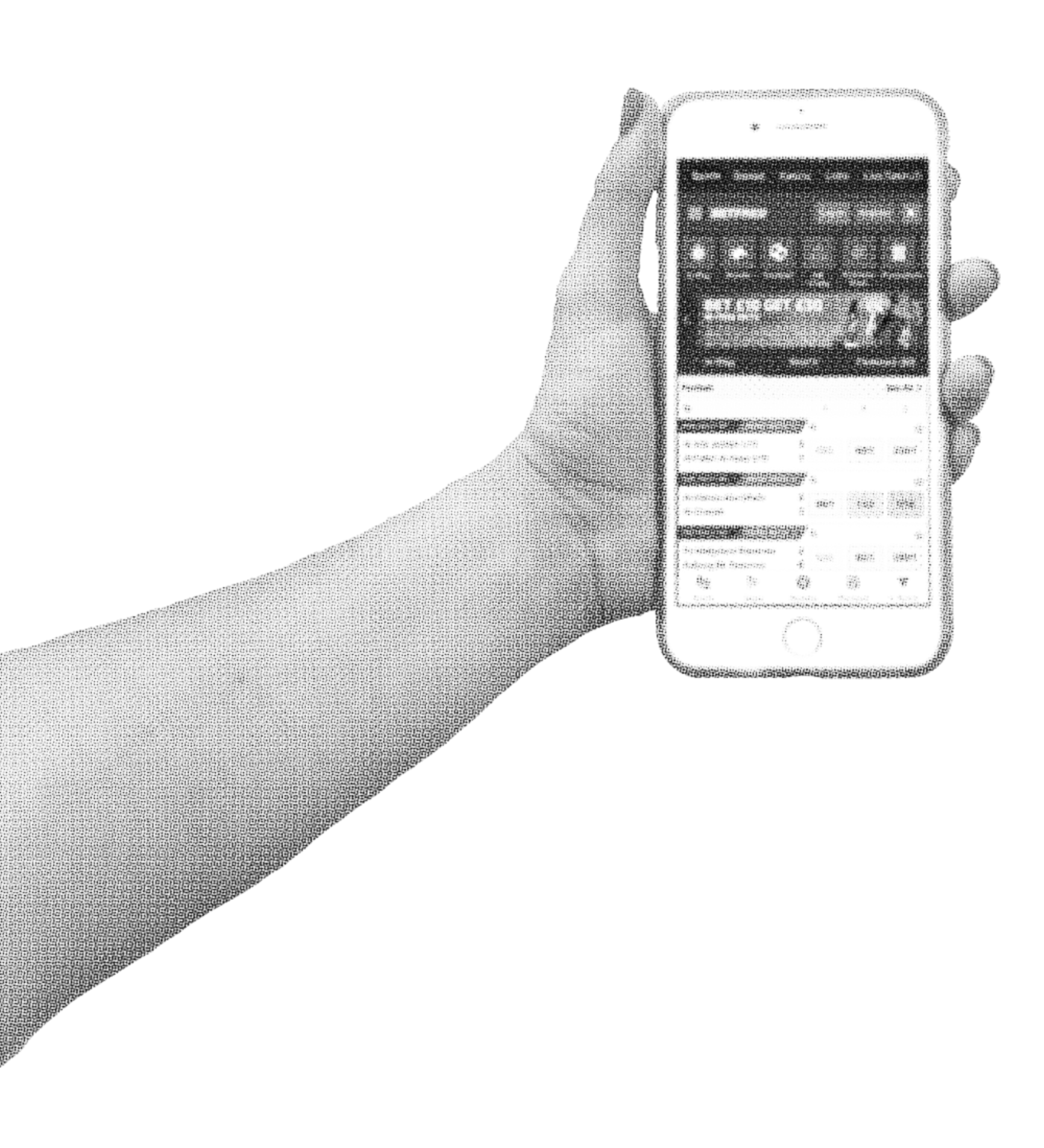
The world continues to evolve. Technology has already had a major impact on the world of gambling. Things have come a long way from the days of the wire. But where is the` future of sports gambling and tech headed?

Amendments and new bills have been continuously passed throughout the last decade, as a result of a surge in online gambling. With the recent ruling coming into effect, this will have to be addressed again.
Online gambling has already had a huge impact on betting on a global scale. Perhaps the biggest difference to face-to-face bet-placing comes in the form of in-play markets and cashouts. The former allows you to bet on a game once it has already started, and the latter allows you to take a certain percentage of your potential winnings out if your team is up.
Between 2016 and 2017 the number of people gambling on a mobile device rose from 29% to 39%. That figure is likely to rise as more states allow sports betting.
The robots are taking over. AI is progressing to such a stage that it could soon have a major impact in the way in which certain games are played. As recently as 2017, Carnegie Mellon University tested their Liberatus AI program on four professional poker players. Liberatus was able to walk away (if you can call it that) with as much $1.8m in chips after 120,000 hands. Developing further technology of this variety could make it possible for high-stakes gamblers to play heads-up against a skilled opponent at the click of a button.

Imagine it: you’re sitting in your home with an ice-cold Budweiser in your hand, watching the Lakers battle the Cavs in the LeBron James derby. Immersing yourself in the experience can only heighten your enjoyment.
Gambling companies would do well to exploit this tech. Having pop-ups appear in the corner of your screen with the latest odds (all while you feel you’re at courtside) is a guaranteed way to trigger millions into making in-the-moment bets.
Who needs to log onto a laptop or mobile when you can throw $5 on James Harden to sink his next 3-pt attempt, all while watching the game play out in front of you?
If you thought the notion of betting while you watch in VR seemed a little out there, prepare to have your mind blown. Imagine a world where the glasses you’re wearing can pick up the exact wind speed and direction inside the football stadium you’re in. Or consider, if you can, technology which provides you with intricate detail regarding turf length and cut, and how each horse in a race performs in those conditions. As smart tech continues to improve, we creep ever closer to a reality which could see us able to break down this information in a way which gives your average gambler incredible insight.
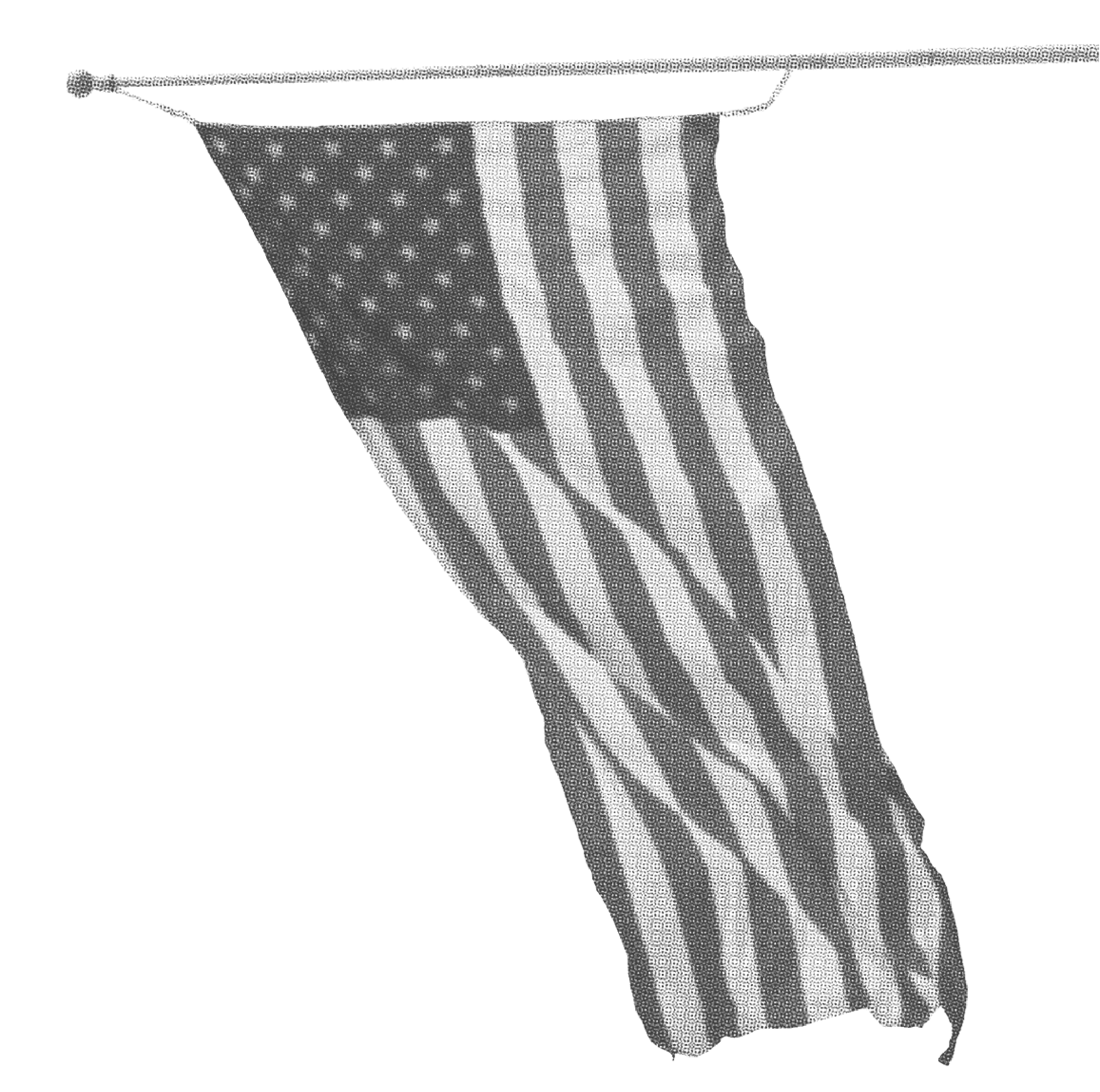
The Supreme Court’s ruling in May 2018 sparked a wave of change in the US. Here are some of the potential repercussions.
Bills have already been introduced to amend existing laws regarding the use of online and mobile gambling. But, with the aforementioned advancement of future tech, more will have to be done. This will be particularly true when bets will be able to be placed through the likes of VR devices. For every platform which provides a medium through which to gamble, amends are going to be required.
Given the hesitancy of some states – like Utah – to adopt the notion of sports betting, this is perhaps unlikely. But, the possibilities are now there for a theoretical 50-state, nationwide sports betting policy. We’re also not likely to have one autonomously ruled hub of gambling any time soon. Given the established bodies which already exist in states like Nevada, Delaware and the other regions which have allowed sports betting for some time, it’s improbable there could ever be one overarching governing body. Who knows, though? Maybe one day you’ll be able to walk into any US state and throw money on any match without having to check policies or regulations.
Regardless of your stance in the argument, it’s impossible to avoid the raging debate as to whether eSports are, as their name suggests, an actual sport. Having eSports included in the same legal bracket as universally recognised sporting events in future bill amendments could help to legitimise them. That’s the key though – having them included as part of the same package. After all, you can bet on elections and TV shows, but they aren’t sports. If this virtual form of entertainment is grouped in with the likes of basketball, football, soccer and other sports of that ilk, it could go a long way towards (legally) defining it as a bonafide sport.
We’ve covered a lot here, but you may still have further queries. Find out more about the changing face of sports betting in the USA by consulting our FAQs and secondary sources.
This will vary dependent on the state you’re in. Much like with the legal age for drinking, you’ll find different regulations monitoring this. You can find a full list of the legal age for gambling here.
A staggering amount. For example, in 2016 alone as much as $4-5 billion was estimated to have been staked solely on sportsbooks. This is all the more incredible when you consider these figures account for as little as 2.5% of overall bets placed.
Across all books, it’s believed as much as $67 billion is lost in bets by Americans every year. This figure speaks volumes for the scale of gambling currently taking place, even prior to wide scale acceptance of sports betting.
The full answer to this question is very complex, as you’ll find here. However, in layman’s terms, odds are calculated by taking a series of factors into account. These include the likes of:
If you check odds before a game and they don’t seem to make much sense, it’s more than likely because one of the factors mentioned above.
If you’d like to read more about the past, present and future of sports betting in the USA,check out these secondary guides.
AP News discuss whether eSports should be counted as official sporting events:
https://www.apnews.com/0cfac9fb9595467881b88cbdac1764d8
CNN report on the Supreme Court’s ruling:
https://edition.cnn.com/2018/05/14/politics/sports-betting-ncaa-supreme-court/index.html
The Gambling Commission provides its annual report on betting statistics:
https://www.gamblingcommission.gov.uk/PDF/survey-data/Gambling-participation-in-2017-behaviour-awareness-and-attitudes.pdf
The Legal Information Institute analyse the 1961 Wire Act in more detail:
https://www.law.cornell.edu/uscode/text/18/1084
NPR discuss the potential impact the new gambling laws might have on the US:
https://www.npr.org/sections/thetwo-way/2018/05/14/589087523/supreme-court-rules-states-are-free-to-legalize-sports-betting?t=1542711295218
SB Nation provide a short summation of how and why the Supreme Court came to their decision:
https://www.sbnation.com/2018/5/14/17346120/sports-betting-supreme-court-case-faq
Scoutsblog provide a full rundown of Murphy vs the National Collegiate Athletic Association:
http://www.scotusblog.com/case-files/cases/murphy-v-national-collegiate-athletic-association-2/
Wikipedia provides a rundown of the infamous 1978-79 Boston College basketball points shaving scandal:
https://en.wikipedia.org/wiki/1978%E2%80%9379_Boston_College_basketball_point_shaving_scandal